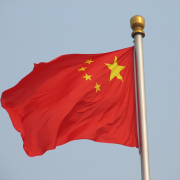Competition among sellers in the Asian NPK market is set to heat up next year as rising exports from China meet increased domestic capacity within the region.
China, the world’s leading NPK producer, ramped up its NPK exports from a low base this year, with this trend looking set to continue in 2019.
But its rising presence within the region is coinciding with greater domestic NPK output in markets including Vietnam, Myanmar, Indonesia and India.
As the world’s leading consumer of NPKs, Asia also imports large quantities from Europe and Russia, so these incumbents — such as Norway’s Yara and Russia’s Acron — will play a part in this increasingly competitive mix.
The increased supply options for buyers from next year may cap potential price rises as sellers fight for market share.

China produces over 50mn t/yr of compound NPKs, so its potential to export is substantial. The Chinese government this year cut the export tax applicable on NPKs from 20pc in 2017 to a flat rate of 100 yuan/t ($14.53/t) for 2018. This notable cut contributed to a jump in NPK exports to 320,000t during January-October, up from 40,000t during the same period in 2017, according to Chinese customs data.
Vietnam and the Philippines have been among the recipients taking more Chinese NPKs in 2018, with no sign that this trend of rising Chinese exports will abate going forward.
Vietnam expands
Vietnam — one of Asia’s largest NPK consumers — is worth looking at in more detail as its production profile is expanding.


Indonesia’s NPK imports totaled around 590,000t last year, according to GTT data, suggesting that much of this new capacity could be for export, which adds to the competition from suppliers within the region.
India, which traditionally imports around 500,000 tons / year of NPS / NPK from countries such as Russia and Indonesia, is increasing its domestic production in the coming years, which will probably reduce this import figure in the medium and long term.
Given this dynamic, the Asian NPK market is expected to become increasingly competitive as the supply east of Suez increases due to increased production and additional exports. The brand loyalty traditionally enjoyed by NPK sellers, which has differentiated them from the basic fertilizer sector, will also be subject to greater scrutiny as buyers’ choices increase.

